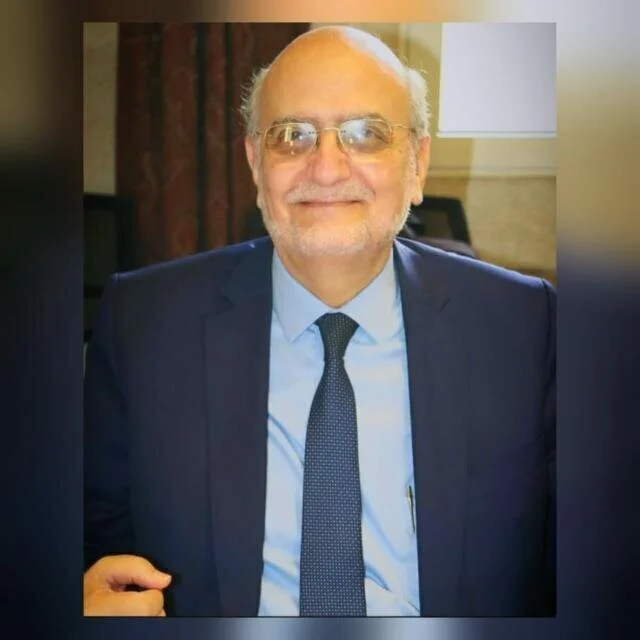Asylum and marginalization under the scrutiny of justice and faith
This speech was delivered at the round table organized by the Middle East Council of Churches under the title "Human Dignity and Palestinian Refugees”, on Thursday 27 July 2023, at the headquarters of the MECC General Secretariat in Beirut. The seminar is part of the series of monthly seminars launched by MECC, within the framework of the “Human Dignity Project” - “Dialogue and Social Cohesion-Social Capital Rehabilitation”.
Living on a land and among people in a society that marginalizes you, thrusts you into poverty, extinguishes your hopes, and stifles your aspirations is the epitome of social euthanasia.
Ever since the hordes of colonizers set foot on the land of the Antiochian Levant and divided it into vulnerable entities through an earthly promise based on a so called divine one, the path has been the same: loss of civilization, social disintegration, displacement, asylum, and professional and economic marginalization. This leads to the loss of victims’ lives and their descent into the furnace of migration and misery.
This land was divided by those who had no right to have it and given to those who did not deserve it. It started with the division of Palestine and the displacement of its people, continued with the Lebanon war which displaced nearly half of its people, and extended to the Iraq war. The latter was justified by avoiding the captivity of a second Babylon under the pretext of removing nuclear weapons and establishing a democracy of giant companies. It ended with the Syrian war, which they envisioned integrating into an Arab autumn so called spring, spring by those who had just emerged from the jungles of obscurantism and ignorance.
The plan is clear to those who can read history from an analytical perspective and even from a purely historicistic one. Palestine was the first successful model, followed by similar models applied to its neighbors with variables adapted to spatial and temporal requirements.
At the Middle East Council of Churches, we have dealt with the Palestinian homeless, who was named refugee, in various refugee camps during these wars. Our council was the first to serve these displaced people, establishing departments to deal with their matters years before the establishment of the Council. Our teams working in Beirut, Amman, Nazareth, Jerusalem, and Gaza have done commendable work and continue to be active today, striving to address the evolving needs of our Palestinian people as effectively as possible. The director of this department for a quarter of a century, who is present here among us today, will enrich this symposium with valuable data.
During the Lebanese war, when I served as the director of relief and development programs in Lebanon for nearly the entire decade of the eighties, I worked with Palestinian camps from Nahr al-Bared to Al-Buss, passing through Sabra, Shatila, Ain al-Hilweh, Mieh-w-Mieh. I witnessed firsthand the humanitarian conditions that are unacceptable to any human being.
Is this international family, which has bestowed the homeland of these people upon settlers from all over the world, all it has to offer them? If fate’s irony requires compensation for the injured, it is hard to believe that the compensation is proportionate to the loss.
When I delved deeper into the Palestinian reality in Lebanon - I am not well-versed in the laws and regulations governing them in other Arab countries, I became distraught and disappointed. I do not mean to burden Lebanon more than it can bear. It is the most sacrificing Arab society for just causes, both Arab and international. It is a haven of freedoms and accepts what no other country, East or West, does. However, logic and justice dictate that policies adopted with refugee cases should be based on homogeneity and foresight.
If camps are turned into hotbeds of misery, they become time bombs attracting all marginalized people in a system based on financial and political feudalism, which knows nothing about socio-economic justice. Today, the reality shows that the camps, at least in Lebanon, remain the same, gathering people of different nationalities coexisting under similar socio-economic conditions.
I will not delve into statistics or detailed data as the honorable participants will address this adequately. However, I believe it is necessary to combat legal, professional, economic, and therefore social marginalization of underprivileged citizens as well as displaced people and refugees. We should provide them with equal opportunities in various aspects of life so they can live decently and respect the regulations and laws of their host state. Ignorance eventually becomes mutual between the state and those it marginalizes. We must emphasize that fair policies have no negative effects either on the labor market or on wealth distribution in the host country. Justice itself is a guarantee.
Every legitimate resident in a land should have all the rights and duties of its people; otherwise, it is racial discrimination that only leads to increased hostility and law rejection by the marginalized. This also applies to the country’s inhabitants. The right to practice a profession, housing, and other basic rights are elements of human stability. Do we think we will protect our homeland by depriving them of these?
In conclusion, I cannot fail to recall the words of our Incarnate Master: “Come to me, all you who labor and are heavy laden, and I will give you rest.” (Matthew 11:28). He fed the hungry and provided them with spiritual food. He commanded believers to welcome strangers and do them justice (Rom 12:13; 1 Tim 3:2; 5:10; 1 Pet 4:9).
Can we do otherwise?

